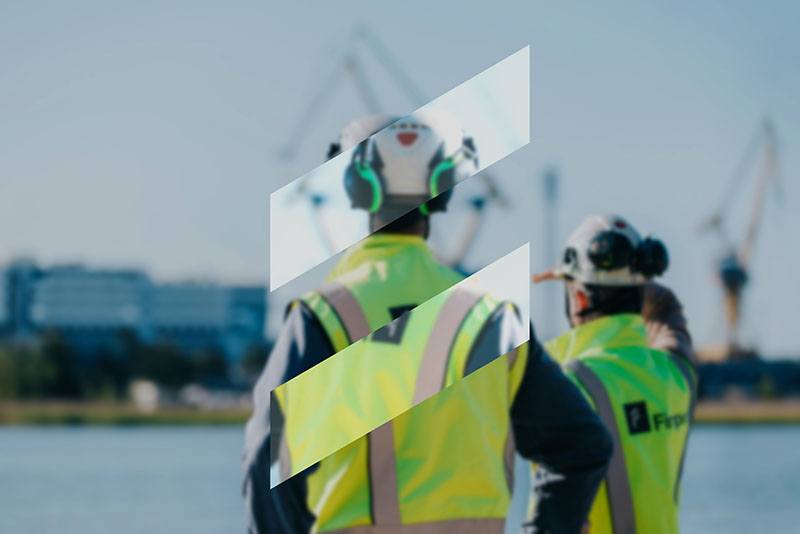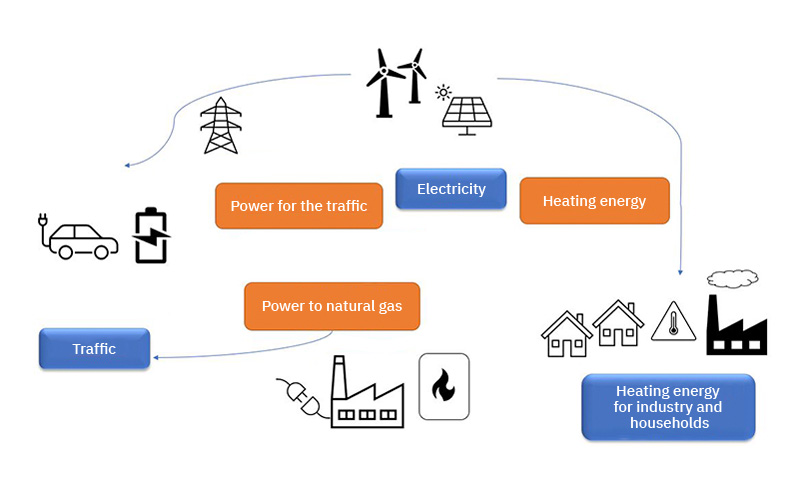EPCM and EPC in clean transition projects

What does the EPCM model entail, why is it often a good option for implementing clean transition projects, and what should be considered when utilizing it? And in which projects does the EPC model work best? These questions are answered by Sami Nissinen, Business Director of Energy Services, Jorma Paananen, Business Director of Project Services, and EIA Manager Tero Siintoharju from Fimpec.
Projects in the clean transition often involve actors who lack experience in managing large and demanding construction projects. However, these projects need to be completed cost-effectively, within budget, and without surprises. EPCM (Engineering, Procurement, Construction, Management) model offers a tested solution for industrial investment projects of varying sizes. In this model, the client employs an EPCM Consultant to assist in all phases of the project.
At Fimpec, we are familiar with this type of operation from various projects. The division of labor between the client and the EPCM Consultant can vary depending on the project and the client’s needs, but a typical division is as follows:
Client
- Sets the project timeline and content requirements.
- Reviews and approves plans in a controlled manner.
- Participates in procurement negotiations, sets procurement frameworks, and signs procurement contracts.
- Monitors the project.
Fimpec’s EPCM Consultant
- Develops and maintains the overall project schedule, leads the project.
- Oversees the creation of implementation engineering documents.
- Prepares technical and commercial inquiries for procurements, sends out inquiries, receives bids, and provides procurement recommendations to the client.
- Oversees project equipment and facility deliveries.
- Maintains project engineering documents.
- Supervises construction and the construction site.
- Oversees installation and commissioning.
- Supervises training.
- Compiles the final engineering documentation.
Expertise and experience at the client’s disposal
The role of an EPCM Consultant can be summarized as helping the client in every aspect of the project so that decisions are based on adequate understanding and expertise. This means the consultant must convey what the client does not know and where potential project risks lie.
To achieve this, the EPCM Consultant needs expertise in engineering and its subcontracting, scheduling, procurement, as well as construction management and related supervision. At Fimpec, we solve this by utilizing the expertise of our specialists in various areas.
This way, we can see things on behalf of the client and ensure that the project progresses according to the plan we have developed together.
The importance of procurement expertise cannot be overstated. In industrial projects, the significance of timely and on-schedule procurements is crucial for the project to proceed on schedule. This requires deep experience in both procurement and the industry, not to mention an understanding of cultural differences between procurement countries.
What alternative does EPC offer?
Especially in wind and solar power projects, EPC (Engineering, Procurement, Construction) model also emerges as a delivery option. Here, the client makes a contract with an EPC Contractor, who takes responsibility for the entirety: engineering, procurement, and construction, and makes their own contracts with subcontractors and equipment suppliers.
Thus, the client is in a contractual relationship only with the EPC Contractor, who delivers the facility on a turnkey basis. In contrast, in an EPCM project, the client makes contracts with equipment suppliers and contractors with the help and support of an EPCM Consultant.
From the owner’s perspective, an EPCM project is often more clearly defined and therefore more cost-effective solution. However, it’s important to note that the risk of success lies more heavily with the client compared to the EPC model, where risks are generally lower but the price higher due to the contractor’s total risk reservation.
EPC projects are also familiar to us at Fimpec, and we are currently involved in the solar park project being built by investment company Exilion in Simo, which is being implemented with this procurement method. We have been involved in the project from the preparatory phase and now act in the implementation phase in an Owner’s Engineering role supervising the EPC Contractor. Practically, we take care of the client’s interests on their behalf.
The right implementation model should always be considered case by case
Projects vary, and it’s important to note that no specific implementation method is an intrinsic value in construction projects. The starting point for selection should be the objectives set for the project and examine which implementation model best helps achieve those objectives. Thus, it’s not advisable to stick to the first procurement form that comes up but to thoroughly consider the pros and cons of different options for that specific project with its unique characteristics.
This is also how we operate in projects where we are involved from an early stage. We offer our experience to the client and together seek the most suitable implementation method for the project to maximize benefits with minimal input.
Case-specific consideration is a good starting point for all construction projects, but as construction projects related to clean transition increase, it’s interesting to ponder how the project models presented above function in them.
A decisive factor in the choice of delivery options is the complexity of the project and its level of technological novelty. As projects become more complex, the pool of actors and suppliers willing and able to take responsibility for the entirety under the EPC model decreases, or at least the bid price increases to such an extent that the solution may not necessarily be the best from a business perspective.
Simplistically, projects that apply established technology, such as solar park projects, are in many cases suitable for EPC deliveries. In these, the construction project’s entirety mainly consists of the solar power system and infrastructure construction and is often so straightforward that an EPC Contractor can be found at a reasonable price.
Renewable energy projects at the other extreme, such as hydrogen economy projects, contain very different areas, many of which require both specific expertise and concurrent technological development. For such projects, EPCM is generally a better option as the risk is shared between the client and the supplier.
Wind power projects and the emerging hybrid power plant projects fall between these extremes. Based on our experience, they are often so diverse that EPC delivery is not possible at the desired price, while EPCM often provides a viable option for their implementation.
Would you like to discuss your construction project and how we can assist in its completion?, Contact us:
Sami Nissinen, Business Unit Director, Fimpec Energy Services
Phone: +358 40 348 5401
Email: sami.nissinen(at)fimpec.com
Jorma Paananen, Business Unit Director, Fimpec Project Management Services
Phone: +358 400 347 373
Email: jorma.paananen(at)fimpec.com


